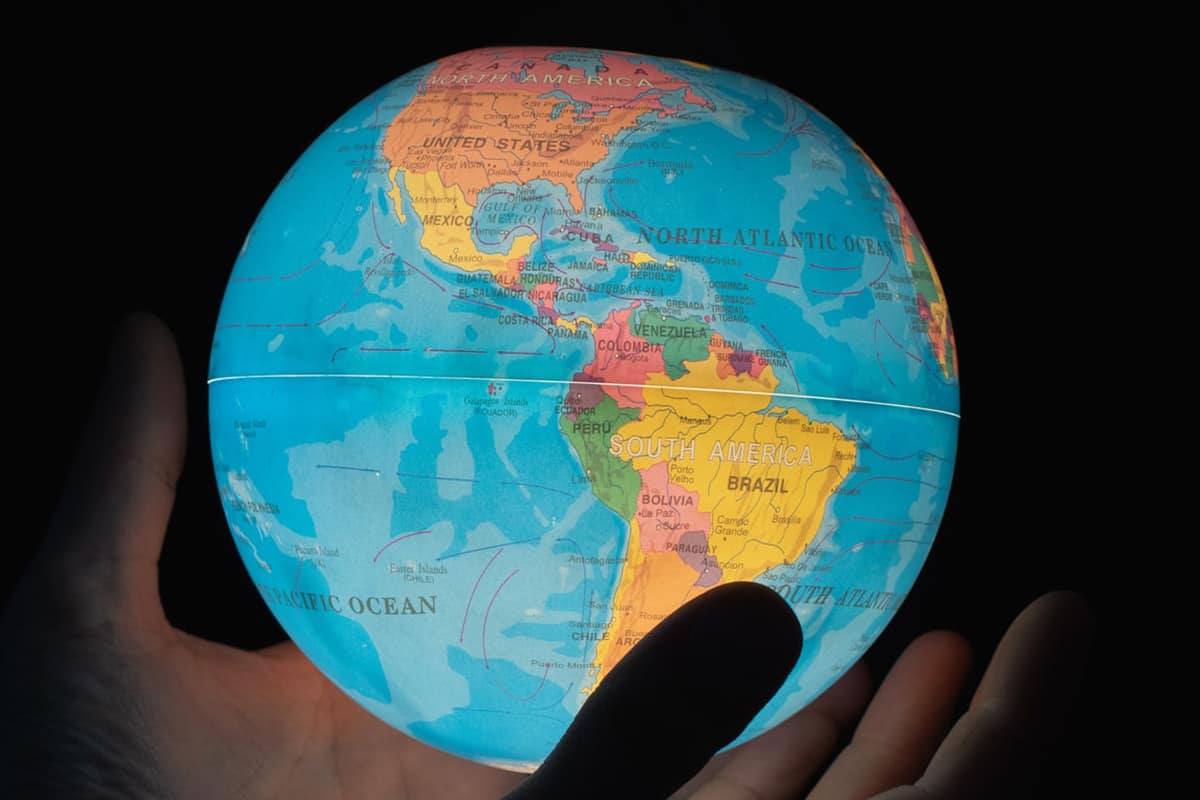With migrants locked in a hotel where they plead for “help” from windows or in shelters in precarious border zones, Central America, from where thousands flee poverty and violence towards the United States each year, now serves as a “bridge” for Donald Trump’s deportations. The process is carried out, according to Central American governments, under bilateral agreements with Washington. For Panamanian political scientist Rodrigo Noriega, from the University of Panama with a doctorate from Yale, it’s a “legal catastrophe” and “violates” international human rights treaties.
Who are the deportees?
Without prior notice, 299 migrants from Iran, China, Afghanistan, Pakistan, India, Uzbekistan, Turkey, Nepal, Sri Lanka, and Vietnam arrived in Panama City on three flights between last Wednesday and Saturday. Unable to leave, though the government denies they were detained, they were first placed in the Decapolis hotel in the capital under police custody. “Please help us,” read a sign they hung in a window.
“There are three flights and there won’t be more. It’s false that this violates laws,” President José Raúl Mulino stated this Thursday. Another 135 migrants, including 65 children, from 13 countries, mostly from Asia, arrived this Thursday in Costa Rica. Another 65 will arrive soon. Guatemala also agreed to receive non-national deportees but hasn’t received flights yet.
“There’s no assessment of the serious risk they face in their countries (like Iran or Afghanistan) or why they had to emigrate,” lamented Salvadoran human rights consultant Celia Medrano, former consul in Washington.
Where are they taken?
Of the 299 people who arrived in Panama, about a hundred were transferred by bus to the San Vicente migration station in Metetí, 230 km east of the capital, in Darién province. Until now, that shelter was used by thousands of migrants, mostly Venezuelans, who entered Panama in recent years through the dangerous Darién jungle, heading to the United States.
That humid and hot zone, about five hours from the capital by land, has problems with basic services like water and medical attention. In Costa Rica, the deportees were taken by bus from the international airport to a center located about 360 km south of the capital, in a remote area near the border with Panama, almost six hours by road.
From the Temporary Migrant Care Center (Catem), a former factory now fenced with mesh where South American migrants returning on foot are also housed, “they won’t be able to leave,” said Costa Rican President Rodrigo Chaves.
Why to a third country?
Costa Rican social researcher Carlos Sandoval, an expert in migration, explained that this is a system of “border externalization” where the United States transfers the slow repatriation process to a third country. These migrants are citizens of countries that don’t accept repatriation flights or with which Washington has tense relations. Additionally, identities and criminal records must be verified, routes and flights organized, and a different destination found for those who don’t accept returning to their nation.
The United States “seeks to discourage them from returning and give time for arrangements due to the enormous logistical difficulty of deportation,” added Sandoval. According to Chaves, they will remain in Costa Rica “the strictly necessary time” for repatriation, four to six weeks.
“The figure of safe third country became an outsourcing of administrative services. The United States should administer deportation, but sought Central American countries to do it,” added Medrano. Panama and Costa Rica maintain that Washington assumes the total cost and that the International Organization for Migration (IOM) participates in the process.
Why Central America?
After the recent visit of U.S. Secretary of State Marco Rubio, Panama agreed to serve as a “bridge” amid Trump’s threats to “recover” the interoceanic canal that he says is controlled by China. “The United States is treating us very well,” said Chaves. On Wednesday, two rival deputies were sanctioned by Washington for opposing the president’s decision to reject Chinese technology.
And Guatemalan President Bernardo Arévalo needs Trump to maintain the vital support that his predecessor, Democrat Joe Biden, gave him to assume power, after harassment from Guatemala’s conservative elite. “We have no possibility of playing with other foreign policy instruments other than in terms of submission… what was called the backyard of the United States. If we don’t comply, there will be sanctions: the carrot and stick doctrine,” opined Guatemalan analyst Renzo Rosales.






